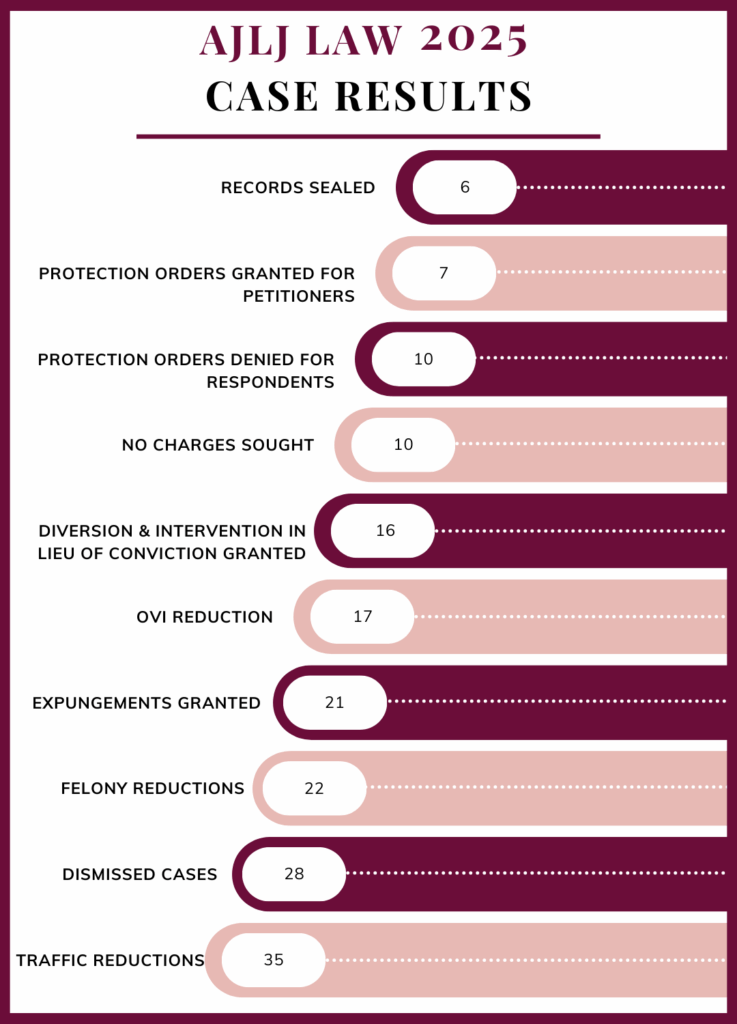Do you feel like your criminal records are holding you back? You are not alone. More than 77 million Americans with criminal records feel the same way. If you’ve ever lost a job opportunity or the chance to get licensed due to your past mistakes, you might be interested in what expungement can do for you.
But what exactly is expungement? It’s the process of removing any criminal records or information linking you to the criminal justice system from state databases, or sealing these records from anyone else other than law enforcement officials.
The benefit of this is when a potential employer or anyone else looks into your background, nothing about your involvement with the criminal justice system will appear. You may apply for a job or a course in college, housing, or credit without fear of being rejected due to your past record.
Let’s look more closely at record expungement in Cleveland, Ohio, and what benefits you get from it.

Understanding Expungement
The Ohio Revised Code allows eligible candidates to have all references to their crime cleared so they can have a fresh start. This is possible by either sealing or expunging criminal records. But what’s the difference between sealing and expungement?
When records are sealed, they are no longer available to the public. When they are expunged, they are permanently destroyed.
The Process Explained
When a certain waiting period passes after your case has been discharged, your lawyer can file a motion for expungement for a felony conviction, misdemeanor conviction, or bail forfeiture with the court in which the case was held. If the prosecuting lawyer doesn’t object to your motion, the court holds a hearing where the judge analyzes the Ohio Revised Code and decides whether to grant your expungement.
If the judge decides in your favor, the offense will “disappear,” and almost no one can access it. Naturally, law enforcement, medical care providers, and providers of care to minors might be permitted to see your records under specific conditions.
Why Do You Need It?
Having a criminal record can hold you back in life. When your record is public and subjected to interpretation, you could be denied everything:
- Life-changing goals such as citizenship
- Something as simple as renting an apartment
- Be overlooked for job promotions and applications for professional licenses
- Have your credibility questioned for future legal proceedings
Ever since 9/11, background checks when hiring have become much more regular. Expungement is an investment that can give you the freedom to pursue your dreams without the discrimination of having to disclose your prior record.
Can You Represent Yourself?
You can always do it yourself, but why risk denying your motion? To file for an expungement, you need to have certain legal knowledge and skills. Several pitfalls might get in your way:
- filing and serving your motion
- possible prosecutor objection
- convincing the court you are rehabilitated and your record deserves to be expunged
If, in the end, the court denies your motion, your effort will be wasted.
Expungement Eligibility
Section 2953 of the Ohio Revised Code gives the conditions you have to meet to be eligible for expungement. Your conviction must not be one of the crimes precluded by law, you should not have been sentenced to prison, and you should have no current criminal charges against you. Additionally, you must let the mandatory waiting period to pass. The eligible combination of convictions is any of the following:
- one misdemeanor;
- one felony;
- two misdemeanor convictions;
- one misdemeanor conviction and one felony conviction.
If you have two or three convictions from the same case, they will be considered as one. Minor misdemeanors like traffic offenses are not considered convictions. On the other hand, sexually oriented offenses, crimes where a minor was the victim, domestic violence charges, and similar cases do not qualify for expungement.
In case you were charged but found not guilty or the case was dismissed, you are eligible for expungement. Furthermore, depending on the charges, your juvenile record can also be expunged. It still depends on whether the court finds that you have been rehabilitated.
Sometimes, you might be required to appear in court. In other cases, though, the lawyers can appear on your behalf.
Attorneys for Expungement in Ohio
Facing the justice system all by yourself can be scary. That’s why if you are looking for record expungement in Cleveland, Ohio, AJLJ, a criminal defense law firm, can help. Our attorneys have the expertise and skills to fight for you throughout the entire legal process. We have offices in Cleveland and Akron.
Contact us today and get rid of the burden of negative prejudice! You deserve a fresh start.





